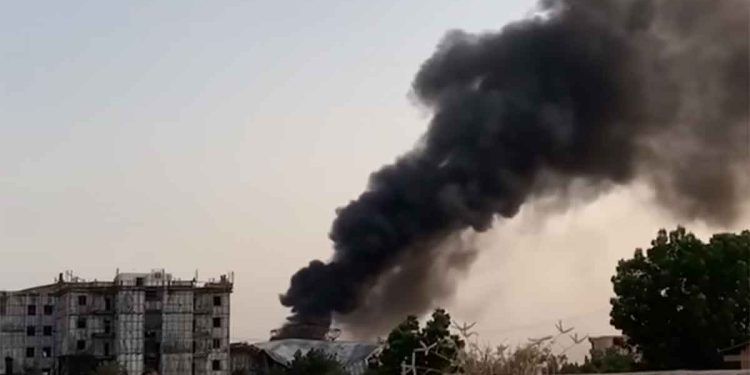The United Nations Children’s Fund (UNICEF) on Monday expressed its deep shock at the bombing of Al-Safiya Mosque in the city of Al-Fashir, capital of North Darfur State, which resulted in the killing of 75 civilians, including 11 children aged 6 to 15, with several others injured to varying degrees.
The UN body called for “a prompt and thorough investigation,” stressing that the attack constitutes a flagrant violation of international humanitarian law.
The Sudanese army accused the Rapid Support Forces (RSF) of carrying out the airstrike on the mosque last Friday, near the Abu Shouk camp for displaced persons. As of Monday evening, the RSF had not issued any comment.
In its statement, UNICEF Executive Director Catherine Russell described the strike as “horrific and unacceptable,” emphasising that “killing and maiming children is outrageous and must not be tolerated,” and reaffirming the need to hold perpetrators accountable for such atrocities.
Russell also revealed that the city has been under siege for over 500 days, depriving children of food, water, and healthcare and exposing them to severe risks.
The assault extended beyond places of worship. A UNICEF-supported water tanker en route to supply clean water to over 8,500 displaced individuals and patients was targeted by a drone, further exacerbating the growing humanitarian crisis amidst soaring rates of malnutrition and disease among children.
This incident carries serious legal implications, as the 1949 Geneva Conventions and their Additional Protocols require the protection of civilians and places of worship from military targeting. The Rome Statute of the International Criminal Court also classifies intentional attacks on mosques or other religious buildings as war crimes.
Moreover, the continued siege imposed on Al-Fashir since May 2024 places the population under direct threat to their rights to life, health, food, and water. Human rights experts argue that this amounts to a policy of collective punishment, which is strictly prohibited under international law.


























